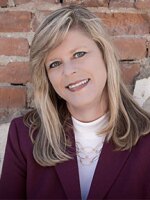AILSA CHANG, HOST:
In November, voters in Ohio will decide whether to pass a constitutional amendment to protect the right to an abortion. Tomorrow, though, they'll be asked something different - whether to make it more difficult to pass a constitutional amendment in the first place. Karen Kasler reports from Columbus.
KAREN KASLER, BYLINE: The plan - to raise the threshold for voter approval of amendments to Ohio's constitution to 60% instead of the current simple majority. When he first proposed it in November, Republican Secretary of State Frank LaRose said it was about keeping wealthy out-of-state special interests out of Ohio's founding document.
(SOUNDBITE OF ARCHIVED RECORDING)
FRANK LAROSE: We're talking about amending the constitution probably for the rest of our lifetimes. That should be taken very seriously.
KASLER: But opponents suspected the timing from the start. Last summer, Ohio's six-week abortion ban went into effect. Soon after, news went viral that a 10-year-old rape victim had gone to Indiana to get an abortion when Ohio doctors would not treat her. A lawsuit put that ban on hold. But groups mobilized to draft an amendment to Ohio's Constitution guaranteeing reproductive rights and abortion access and started gathering signatures for a November ballot issue. So Republican supermajority lawmakers pushed for an August special election. There was just one problem. Republicans had voted to eliminate most August special elections in a law they passed in December. LaRose, who had testified in support of that law, said it shouldn't be an issue.
(SOUNDBITE OF ARCHIVED RECORDING)
LAROSE: I do not believe in having elections in August as a normal way of holding elections. But if the state legislature decides to hold an election in August, it's not unusual.
KASLER: Actually, it is unusual. The last time a statewide special election was held in August was in 1926. A huge coalition formed to oppose raising the approval threshold, and hundreds of those opponents descended on the statehouse in Mack.
(SOUNDBITE OF ARCHIVED RECORDING)
UNIDENTIFIED CROWD #1: (Chanting, inaudible).
KASLER: Also controversial was an added provision dramatically increasing the workload for groups wanting to put amendments before voters. They'd have to get signatures from all 88 counties, not 44, as in current law. In a state as large and rural as Ohio, that would make it almost impossible for grassroots groups to get amendments on the ballot. And it's not like that's happened a lot. Since 1912, Ohio's Constitution has been amended 172 times, but only 19 of those amendments came from citizens or groups. Republican supermajority lawmakers easily passed the plan, and Democrats and protesters erupted after the vote.
(SOUNDBITE OF ARCHIVED RECORDING)
UNIDENTIFIED CROWD #2: (Chanting) One person, one vote. One person, one vote. One person, one vote.
KASLER: The opposition includes Ohio's four living ex-governors and five former attorneys general from both parties. Democratic former State Representative Mike Curtin has been one of the leading voices against Issue 1.
(SOUNDBTIE OF ARCHIVED RECORDING)
MIKE CURTIN: It was a rush job on a monumental question, shifting a 111-year-old right that Ohioans have had to amend their state constitution and making it darn near impossible to do so at a 60% threshold.
KASLER: Despite the timing, Ohioans have shown up for early voting, with lines reported in some counties. An ad blitz on both sides of the issue has totaled around $22 million. It is the only issue on the ballot Tuesday.
For NPR News, I'm Karen Kasler in Columbus. Transcript provided by NPR, Copyright NPR.
NPR transcripts are created on a rush deadline by an NPR contractor. This text may not be in its final form and may be updated or revised in the future. Accuracy and availability may vary. The authoritative record of NPR’s programming is the audio record.



